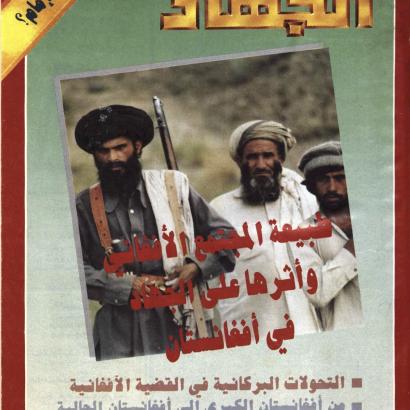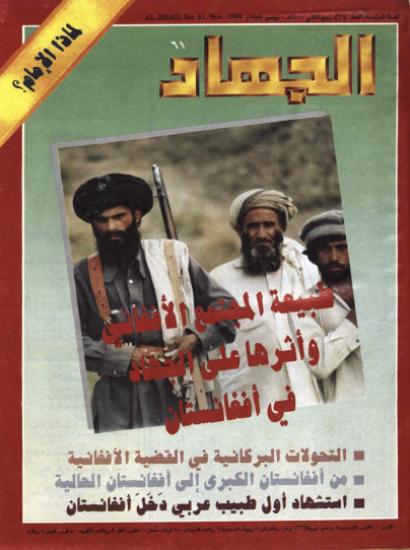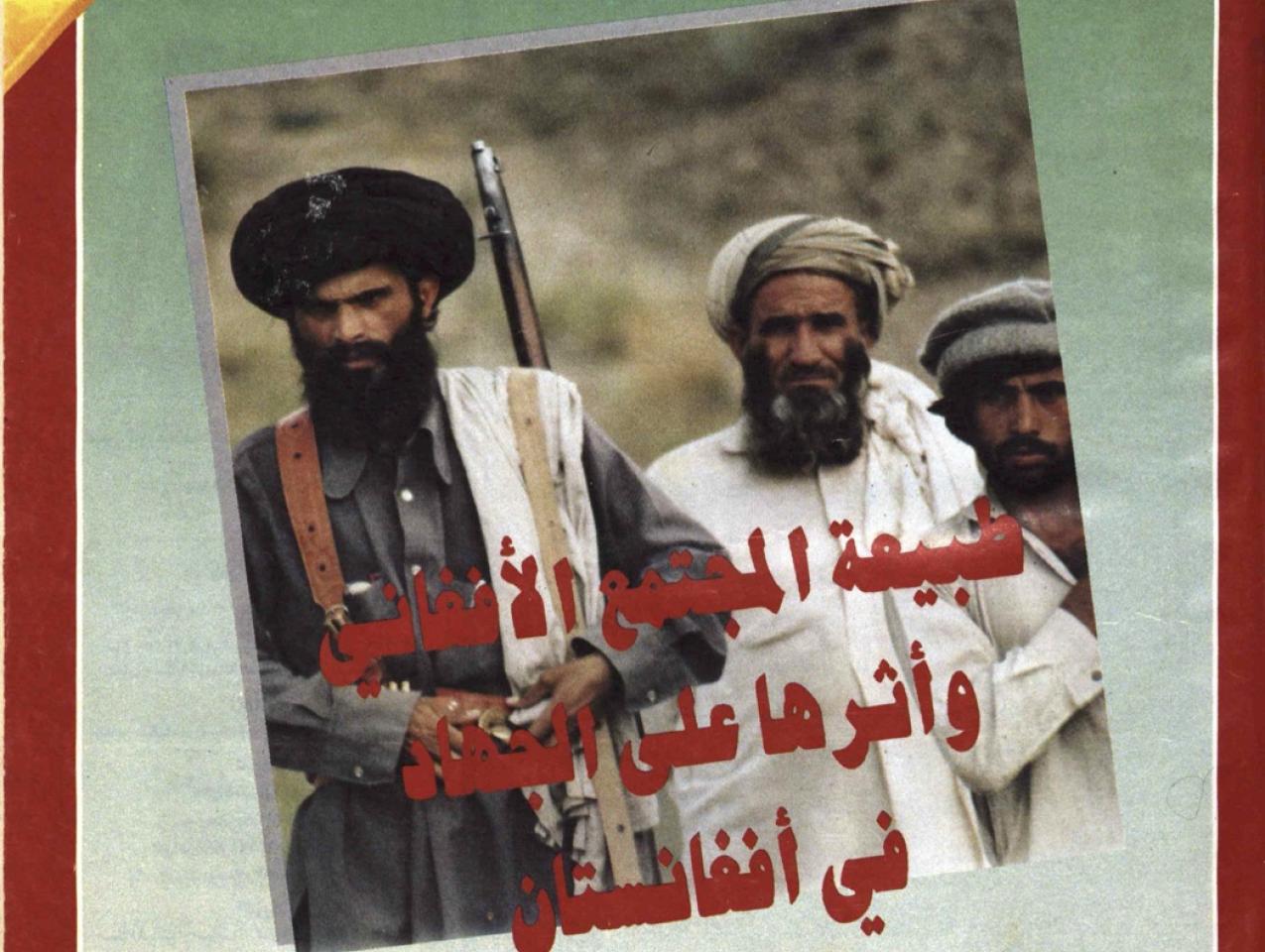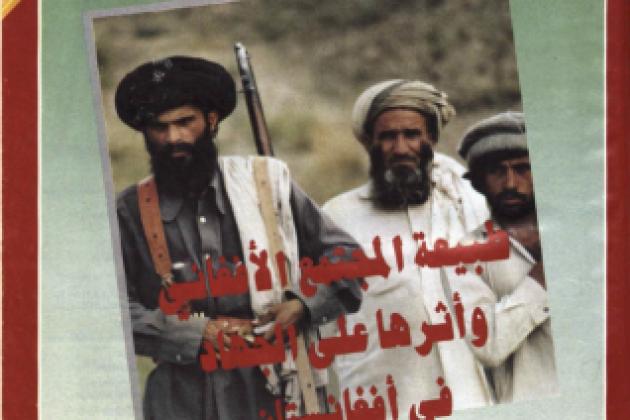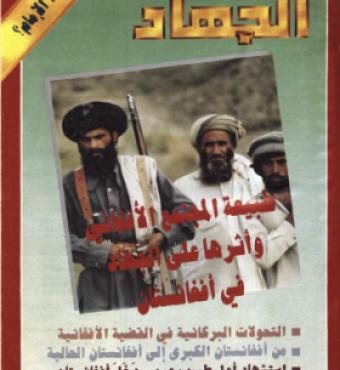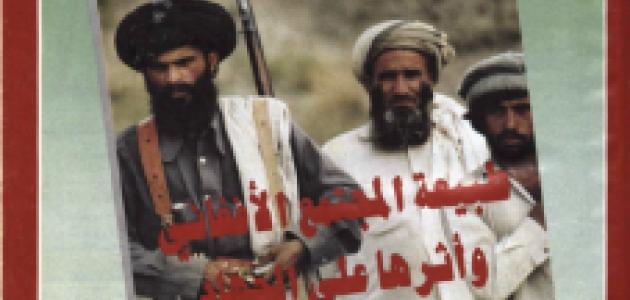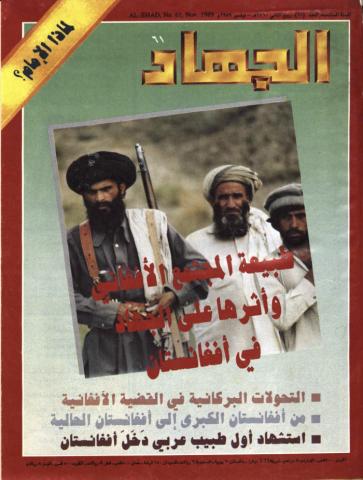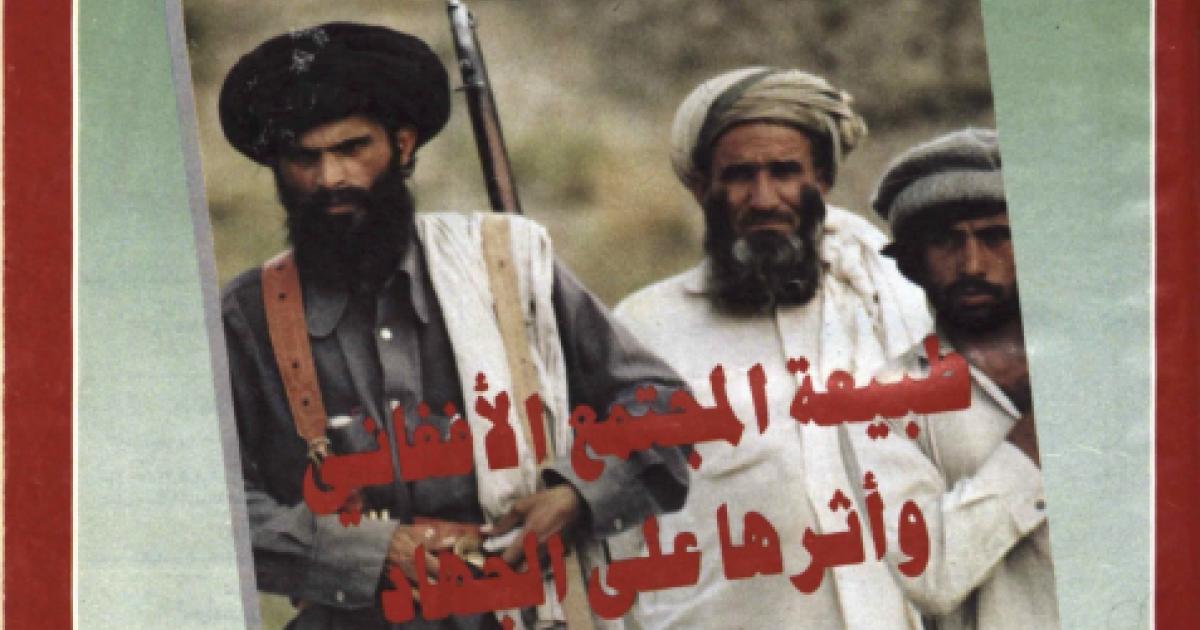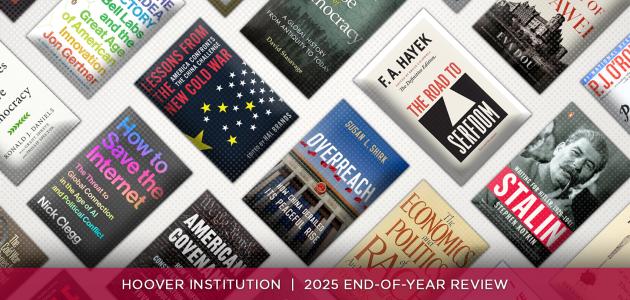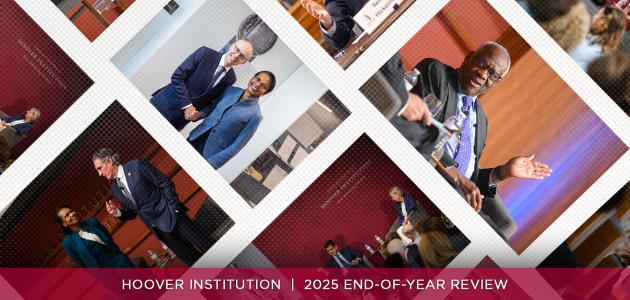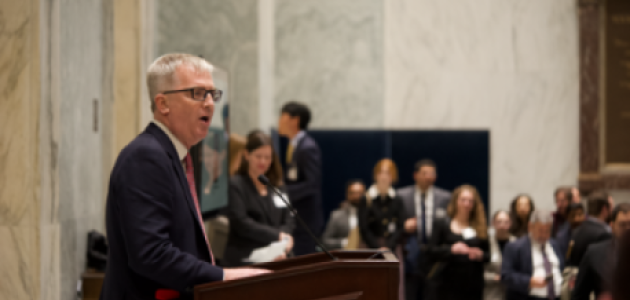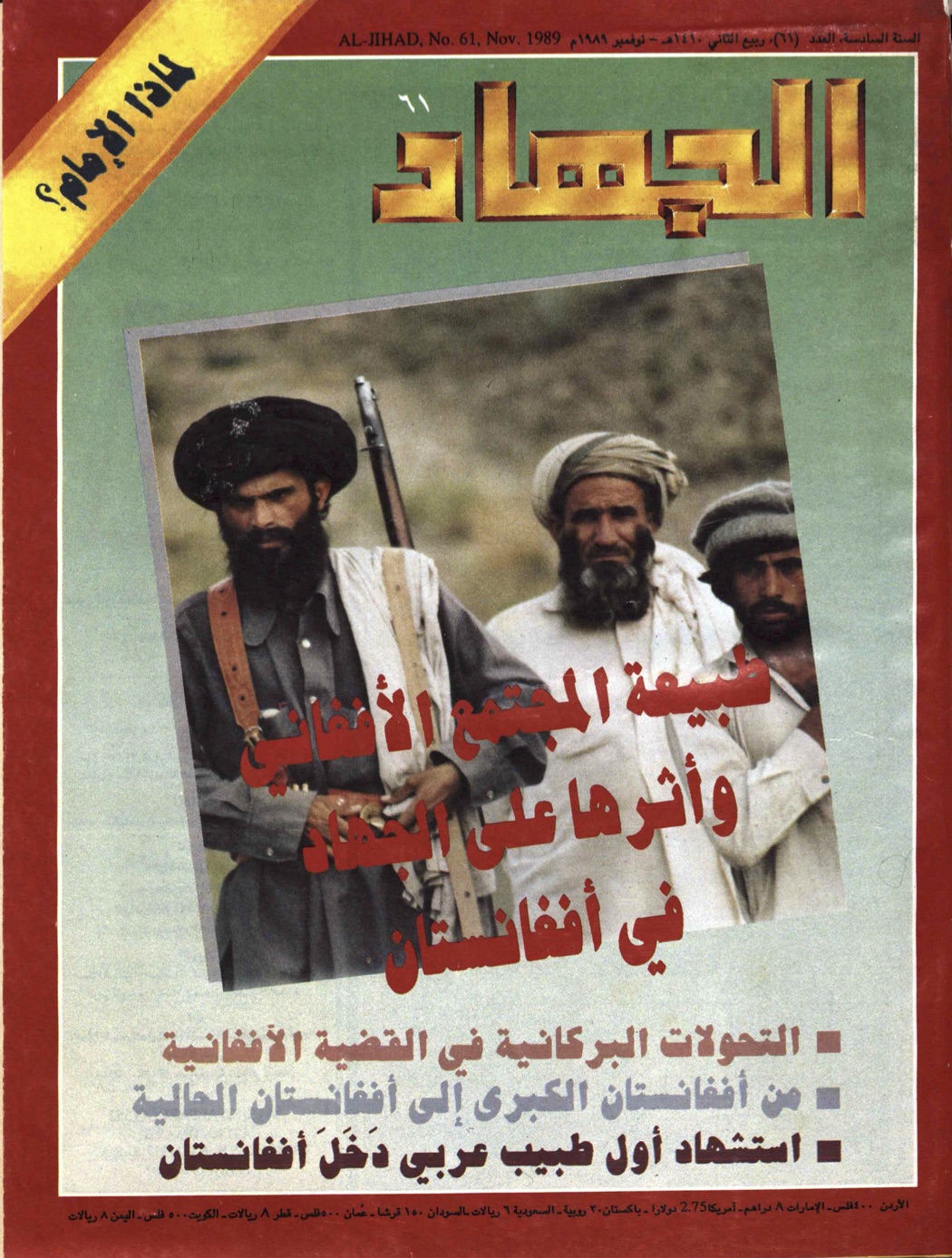
This month, Hoover Library & Archives announce the launch of an online digital repository that will allow users access to one of the most significant collections of Afghan periodicals in the world. The Hoover’s Afghan Partisan Serials (APS) collection is a major contribution to the preservation of Central Asian history and consists of a careful selection of more than four thousand individual issues of twenty-nine newspapers and journals published in Dari, Pushto, Arabic, and English. Here Afghanistan’s social and intellectual landscape is represented by the Taliban and anti-Soviet mujahedeen groups, the Communist People’s Democratic Party; exiled loyalists to the deposed Afghan monarchy; independent humanitarians and intellectuals; and minority political parties that emerged following the post-2001 transition toward democracy.
Professor Abbas Milani, Hoover fellow and the Hamid & Christina Moghadam Director of Iranian Studies at Stanford University, reflected that "Afghanistan was a cauldron of the Cold War. It has also been a hotbed for varieties of Islamic radicalism. It has been hitherto hard for scholars and commentators to access primary sources from that country's many political and ethnic groups. Here is a rare, rich, and easily accessible collection of critical sources from some of the most important political voices of modern Afghan society during a tumultuous periods of transition. If Clifford Geertz is right that the best way to "cover" Islam is to allow Muslims to speak for themselves, this is an indispensable collection of primary sources from forces in that society allowing us to hear and read, analyze and understand their unmediated voices."
Stanford historian Robert Crews, author of Afghan Modern (Harvard University Press, 2016), stated, “The acquisition by the Hoover Institution of this rare collection of journals is a boon to scholars of Afghanistan as well as to researchers working on global jihadist movements. One of the most daunting challenges that students of Afghan history and politics confront is the scarcity of printed sources, which have been lost, dispersed, and fragmented by decades of revolution and war. This unique collection is particularly valuable because it brings together important publications by key political actors, opening up the possibility of reconstructing the world of ideas that Afghans have inhabited from the late 1970s. The journals reflect a broad range of political orientations, including those that, from the 1980s, intersected with global jihadist thought. These materials are crucial to scholarly research, still in its infancy, on Afghan politics and on Islamic movements in the modern era. Access to this body of sources at the Hoover will strengthen its contribution to the study of war and revolution and significantly expand the geographic scope of research possibilities there. The preservation and digitization of these materials will greatly benefit an international community of scholars, Afghans among them, who are keenly interested in gaining a deeper understanding of the ideas that have played such a central role in our modern, global history.”
Few libraries outside Afghanistan collected newspapers or journals before the 1979 Soviet invasion, an event that started a flow of millions of refugees and from which Afghanistan has still not fully recovered. Since that time regular access to the Afghan press has been hampered by the realities of near-constant warfare, economic dislocations, and a telecommunications and Internet system that is one of the least stable in the world.
This digitally preserved collection is a valuable resource for students, scholars, humanitarian groups, area experts, and decision makers as they seek to understand recent Afghan history broadly and also its intersection with US national security strategy. Understanding Afghanistan is an imperative that crosses disciplinary and policy boundaries and the Afghan Partisan Serials collection is helping by providing information in the words of Afghanis and others living there in recent decades.
The digitization of the collection, complete with robust descriptions and metadata, represents a significant step forward in the preservation of Afghanistan’s history. Beyond easy access to a critical textual resource, the Afghan Partisan Serials publications preserve more than words, serving as a rich visual depository of Afghanistan’s history. Publications are vividly illustrated with photographs, battlefield scenes, cityscapes, and political cartoons, which are now available online.
A positive future for Afghanistan will depend on an understanding of the history and transitions, political and intellectual diversity, and the individuals and social forces that make the country what it is today. Nowhere are these trends better on display than in Afghanistan’s press: the hundreds of newspapers and journals that play a key role by interfacing with and informing the Afghan people of critical national issues of political and social importance. More than a century old, the press is one of the few surviving mediums bearing testament to Afghanistan’s tumultuous political history, as well as its rich and varied intellectual and social history. Users of the new database will find publications that represent a diverse cross-section of Afghan history:
- Taliban (1996-2001)
- Newspapers and journals published during the era of the Islamic Emirate of Afghanistan, including official newspapers and journals published by the Taliban, opposition-oriented publications, and longtime government-owned daily newspapers that have reflected the views of the government in power since their inception
- Mujahideen Anti-Soviet Jihad (mid to late 1980s)
- Newspapers and journals published by a variety of armed groups during the anti-Soviet warfare of the 1980s
- Afghan Exiles in Pakistan (late1980s and early 1990s)
- Voices from Afghanistan’s exile community in Pakistan, including monarchy loyalists, nongovernmental organizations, and US-funded organizations
- Karzai, Post-Karzai Period (2001 to the present)
- Voices from the post-2001 landscape including minority and anti-American political parties
- People’s Democratic Party of Afghanistan (PDPA)
- Publications from the era of the Communist Democratic Republic of Afghanistan under Babrak Karmal and Mohammad Najibullah reflecting pro-Soviet articles and political positions
- Independent Publishers
- Independent voices in the Afghan publishing landscape that published partisan political opinions
A collection of rare Afghan periodicals from the Afghan Partisan Serials collection will be on display in the Herbert Hoover Memorial Exhibit Pavilion in the fall, as part of an exhibition highlighting new acquisitions at Hoover Archives.




